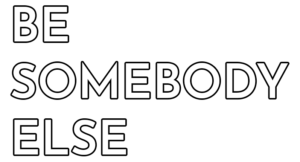Remember lullabies, notice waves: the sound of a good night’s sleep

It’s such a drag when you wake up after seven or eight hours’ sleep, apparently good sleep, feeling as if nobody’s turned yesterday off. How can you cope with today when you’re still buzzing from the previous 24 hours? It’s as though your past, every bad thing, has risen up and decided to come after you. You feel incapable, frightened, angry and confused.
A conversation I had several years ago with Dr Marco Pagani, Research Director at the Institute of Cognitive Sciences and Technologies in Rome, pointed me towards an important reason why this might happen. One of the phases of sleep that we need to go through each night if we’re to consolidate our memories and feel able to adjust to future challenges involves slow wave sleep (SWS). In an article from 2017 he lists the many converging effects of poor sleep.¹ He describes how cycles of SWS, which happen early on in the sleep process, and of rapid eye movement (REM), which occur towards the later stages of a night’s sleep, shape our capacity to remember and to learn:
SWS … facilitates information transfer from hippocampus to neocortex and the reorganization of distant functional networks. The “dialog” between hippocampus and neo-cortex favours memory encoding. During Rapid Eye Movement (REM) sleep a decreased activity from hippocampus to neo-cortex occurs, suggesting a more intense memory consolidation.
If you want a good night’s sleep that tucks away the effects of the previous day, which files some of them as memories, earmarks them as ‘done’, consigns them to what feels like the past so that it takes an effort to remember them, you need to fall asleep in a way most likely to promote SWS. Then you need to wake after you’ve had substantial periods of SWS and REM.
Of course there are also many other important things that happen while you’re asleep that we could address in relation to SWS and REM. Autonomic systems activity, for example, to do with the release of hormones like growth hormone, cortisol, prolactin, and aldosterone. All I want to suggest here are some ways you might be able to go to bed with a lot of hope that your next day won’t feel like your last.
And I’m not going to say much here about REM. That’s pretty well-covered elsewhere on the web. I’d like to, if I may, share some thoughts about how a little neuroscientific understanding can be practically applied through some very simple means and without any professional experience.
Let’s think about lullabies. Or anything someone might find lulls their child off to sleep (sometimes them, too). The drone and gentle vibration of a car engine; rocking; some forms of music. If you want SWS you need to invest in lulling and these are the kinds of thing people have turned to when they’ve wanted to lull their child, whose experience of getting to sleep is necessarily passive, who seems to need some help getting off to sleep. No drugs. No counting sheep (although once you learn to count that can be a good one).
If we find ourselves as adults noticing things that gently lull us we may feel drowsy, dreamy: the sound of the wind blowing outside through the trees. The noise of the sea washing on the shore. They begin to entrance us. I have written about trance states before (2020), suggesting that they are present in most forms of therapy and seem closely linked to therapeutic change. Mikkel Borch-Jacobsen (1993) has some important things to say about the subject, and I imagine myself returning to it again in the near future; but for now, let’s just think about what a trance might offer us for our sleep.
Besedovsky, Cordi, Wißlicen, Martínez-Albert , Born and Rasch’s recent work connects hypnotic trance states with optimal slow wave sleep (2022). It describes what happens if the beginning of a night’s sleep is deliberately ‘blurred’ by hypnosis. Sleep needs to involve a gradual transition from wakefulness to sleep rather than simply … lights out. As Dr Pagani pointed out, when we spoke in 2018, going from wakefulness to deep sleep without a gradual transition takes SWS off the menu.
Most good sleep advice will tell you to find ways of relaxing before you go to sleep. What it may not tell you is that really deep relaxation, the kind Dave Elman, widely regarded as one of the best sources for information about hypnosis, describes (1964) might help you fall asleep, stay asleep and get the best kind of sleep you can. Try Paul McKenna’s sleep trance recordings, available for free on YouTube. I use them myself, preceded by Stanley Rosenberg’s basic exercises for vagus nerve regulating function (Access the healing power of the vagus nerve, 2017, North Atlantic books).
What you don’t want to do is simply hit the sack.
1. His comments are about Post-Traumatic Stress Disorder (PTSD) sufferers, but you don’t need PTSD to find your SWS disrupted enough for you to be profoundly affected by the aftermath (although PTSD sufferers, anyone going through their menopause and anyone recovering from an illness might find what I have to say here particularly helpful).
References
Besedovsky, L., Cordi, M., Wißlicen, L., Martínez-Albert, E., Born, J., and Rasch, B. (2022) ‘Hypnotic enhancement of slow-wave sleep increases sleep-associated hormone secretion and reduces sympathetic predominance in healthy humans’ in Communications Biology, vol 5:747.
Borch-Jacobsen, M. (1993) ‘From Psychoanalysis to Hypnosis’ in The Emotional Tie. 1993. Stanford University Press.
Elman, D. (1964) Hypnotherapy. Westwood Publishing.
Pagani, M and Carletto, S. (2017) ‘A hypothetical mechanism of action of EMDR: The Role of Slow Wave Sleep’ in Clinical Neuropsychiatry, vol 14, 5)
Tomaszewski, T. (2020) ‘Noticing the Effects of Narcissism: Working with Clients Ending Abusive Relationships’ in EMDR Therapy Quarterly, 2020, Vol 2)

